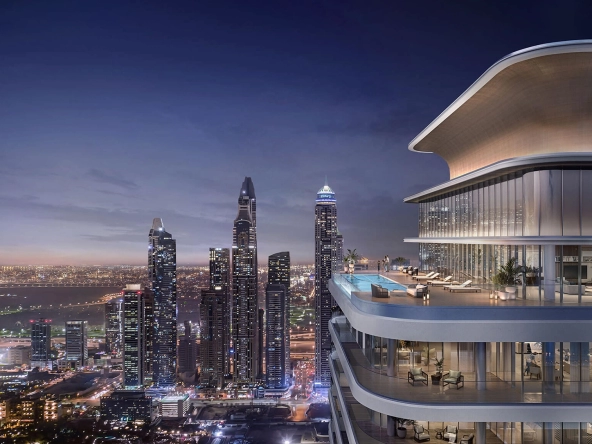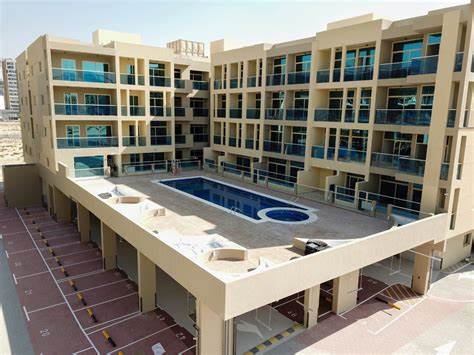
Dubai Rent Prices Too High? Developer Recommends 20% Drop to Balance Market
Dubai rent prices continue to rise in 2025, leaving tenants struggling with housing affordability and prompting industry leaders to call for intervention. A leading Dubai developer has suggested that a 20% drop in rental rates could be the key to rebalancing the market and restoring long-term sustainability.
The rising cost of living in Dubai is a multifaceted issue that affects various demographics, including expatriates, working professionals, and local families. For instance, a recent survey indicated that over 60% of renters feel pressured to move to less desirable neighborhoods just to afford their housing. This struggle is particularly evident in areas that once attracted young professionals seeking vibrant lifestyles and career opportunities. As demand for housing continues to surge, it is crucial for stakeholders to consider the long-term implications of current rental trends.

Rising Rent Prices in Dubai
In addition to the financial burden, increasing rents can also lead to significant lifestyle changes for many residents. For example, families may have to forgo essential services, such as quality education or healthcare, simply to afford rent. Furthermore, the pressure to relocate can disrupt social ties and community cohesion, which are vital for a thriving urban environment. Such shifts in demographics can lead to a less stable and more transient population, impacting the city’s cultural fabric.
Over the last 24 months, rental costs across Dubai have increased significantly — particularly in premium areas such as Downtown Dubai, Dubai Marina, Palm Jumeirah, and Business Bay. Some tenants have reported rent hikes of up to 40%, driven by surging demand, limited supply, and a booming post-pandemic recovery.
While landlords have benefited from higher yields, the increasing strain on residents is becoming more visible. Many working professionals, families, and middle-income earners are now being priced out of central communities and relocating to more affordable areas such as JVC, Dubai Silicon Oasis, and Dubai South.
Moreover, the developer’s recommendation for a rent reduction resonates with current trends in urban development, where affordability is becoming a priority. Innovative housing solutions, like co-living spaces and mixed-use developments, are increasingly being explored as alternatives to traditional rental models. These new approaches can provide affordable living options while fostering a sense of community among residents, ultimately benefiting the overall market.

Developer: 20% Rent Drop Would Support Market Health
It’s also worth noting that cities worldwide are facing similar challenges regarding rental affordability. For instance, cities like London and San Francisco have implemented various measures — including rent control and housing development incentives — to address the escalating housing crisis. Such examples can inspire Dubai to adopt policies that encourage sustainable growth while protecting the interests of all stakeholders, ensuring that the city remains appealing to both residents and investors alike.
One of Dubai’s most prominent property developers recently made headlines by stating that the current Dubai rent prices are unsustainable. According to the company, a 20% reduction in average rents would not damage the market — but actually strengthen it.
“An affordable, inclusive rental market supports long-term growth. When rent prices rise too fast, you risk pushing out the workforce and shrinking demand,” the developer stated.
The comments have sparked renewed discussions about housing affordability in Dubai and the future of the emirate’s real estate market.

Why a Rent Correction Could Be Positive
Industry experts agree that a rental correction could benefit multiple stakeholders. Here are some of the key advantages:
- Improved Affordability: A rent reduction would ease cost pressures on residents, allowing them to live closer to work or key amenities.
- Lower Vacancy Rates: More competitive pricing could lead to longer tenancies and reduced turnover.
- Increased Buyer Interest: With rents stabilizing, more residents might consider purchasing property, especially in affordable communities.
- Stronger Economic Growth: A balanced housing market helps retain talent and maintain the city’s global appeal.
For real estate investors in Dubai, this could also signal a shift in strategy — from short-term rental yields to long-term tenant retention and capital appreciation.
Market Outlook for 2025 and Beyond
Investors, too, are increasingly recognizing the importance of sustainability in the property market. Many are shifting their focus toward developments that prioritize energy efficiency and affordable living. These changes reflect a broader trend within the global real estate sector, where socially responsible investments are gaining traction. By aligning investment strategies with market demands, stakeholders can contribute to a healthier housing ecosystem in Dubai.
While the suggestion of a 20% rent drop might seem bold, there are signs the Dubai rental market could cool down slightly in the coming year. A wave of new residential supply is expected to enter the market from developments in MBR City, Dubai Creek Harbour, and Dubai Hills Estate.
As we look ahead to 2025, it is essential to consider the broader economic context impacting the rental market. The ongoing recovery from the pandemic, fluctuations in oil prices, and global economic trends will all play a significant role in shaping the housing landscape. Moreover, the anticipated influx of international events, such as Expo 2025, may accelerate demand for temporary housing solutions, further complicating the rental market dynamics.
Analysts predict that as more units become available, rental growth may slow — particularly in mid-market and suburban areas. However, prime locations may continue to see elevated prices due to persistent demand and limited inventory.
Final Thoughts
Ultimately, addressing the rental crisis in Dubai requires collaborative efforts from all stakeholders — including developers, government entities, and residents. By fostering open dialogue and exploring innovative solutions, the city can navigate these challenges and ensure a thriving, diverse community for years to come. The future of Dubai’s real estate market hinges on its ability to balance growth with sustainability and affordability, a task that, while daunting, is crucial for the city’s continued appeal as a global destination.
Dubai remains one of the most attractive property markets in the world, but skyrocketing rent prices could become a long-term risk if not addressed. The call from a major developer to reduce rents by 20% shines a spotlight on the need for affordable housing solutions and a more balanced approach to growth.


